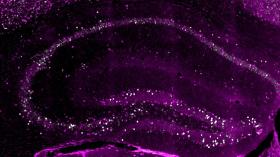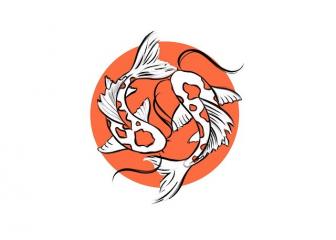#Neuroscience
Science & Technology | Science & Technology
The brain stores at least 3 copies of every memory
A new study in mice suggests that the brain creates multiple copies of memories, which enables it to regulate how they change over time.
Psychology | Psychology
Adolescent Stress Alters Brain Genes, Affecting Adult Behavior
A new study reveals that excessive stress during adolescence can lead to long-lasting changes in gene expression in the brain, particularly those related to bioenergy functions.
Psychology | Psychology
Scientists solved the mystery of what makes people scared of heights
This phenomenon, termed acrophobia, can escalate to a debilitating extent and has intrigued neurologists and psychologists for years.
Advice & Self-Help | Couples and Relationship Support
The power of science communication: 5 questions for Heather Berlin
This neuroscientist is combining research, clinical work, and communication skills to bring science into popular culture
Science & Technology | Science
Neuroscientists Finally Understand An Elusive Mechanism Involved in Memory Creation
Researchers may have pinpointed the spot where brains store memories, which could help develop new neurological drugs.
Health & Fitness | Psychology!
Insomnia in people with depression is associated with neural circuits in the temporal lobe
A new neuroimaging study comparing brain activity of depressed people suffering from insomnia with brain activity of people without insomnia has found that participants with insomnia and depression had higher resting-state functional connectivity in the s
Science & Technology | Science
How Music Can Prevent Cognitive Decline
Listening to or practicing music had positive implications on cognitive decline in older adults by stimulating the production of gray matter in key brain areas, a new study reveals.
Science & Technology | Science & Technology
The Brain’s Support Cells May Play a Key Role in OCD
A newly discovered cellular mechanism that involves astrocytes, as well as neurons, appears to be involved in repetitive behaviors and OCD.
Science & Technology | Science
Neuroscientists listened in on people’s brains for a week. They found order and chaos.
The study shows that our brains exist between chaos and stability—a finding that could be used to help tweak them either way.
Health & Fitness | Psychology
The fascinating neuroscience behind dreaming
Sleep is essential to our physiological and psychological well-being, as it allows us to recharge overnight in order to face a brand new day with our cognitive abilities intact. So, it seems that sleeping is necessary. But is dreaming? What even is a drea
Science & Technology | Science
Some regions of your brain can communicate faster as you age
Signals between some regions of the brain may be fastest at age 34, while transmission in other areas gets steadily faster with age. Understanding this may improve our knowledge of neurodevelopmental conditions such as schizophrenia
Music | Music
Why Certain Types of Music Make Our Brains Sing, and Others Don’t
Music can induce a range of emotions and help us to better understand different cultures. But what is it that makes us tune in to some songs more than others? Researchers say when we listen to a song, our brains predict what happens next, and that predict
Science & Technology | Science
Can Listening to the Beatles Improve Your Memory? New Research Says Music Just Might Stir the Brain
Listening to your favorite music increases connectivity in the brain, especially for older people. Researchers said music appears to bridge the gap between the auditory system and the reward system in the brain.
Science & Technology | Cool Stuff
Brain practices new tasks while people sleep, study finds | Brown University
A new study associated with the BrainGate consortium offered significant clues about how humans learn and form long-term memories; the findings could provide insights for developers of assistive tools for people with paralysis.
Science & Technology | Science
Evidence Mounts for Alternate Origins of Alzheimer’s Disease Plaques - Neuroscience News
A new mouse study reveals a breakdown in the process that clears brain cells of waste products precedes the buildup of amyloid plaques associated with Alzheimer's disease.
Science & Technology | Science
86% of People Can See This Optical Illusion. Are You One of Them?
A team of psychologists studied people's reactions to this optical illusion to find out how our bodies react to our minds being tricked.
Science & Technology | Science & Technology
Elon Musk claims his Neuralink brain chip could 'cure' tinnitus in 5 years. But don't hold your breath
The technology is progressing but it must pass a number of regulatory hurdles. We’re unlikely to see an affordable implant in the short term.
Science & Technology | Science
Study Reveals Set of Brain Regions That Control Complex Sequences of Movement
The primary motor and primary somatosensory areas of the brain are involved in controlling immediate motor movements in real-time, while the premotor area appears to control planned, sequential movements as well as reacting to and adjusting the sequence w
Psychology | Psychology
Anyone Can Be Trained to Be Creative - Neuroscience News
A new method, based on narrative theory, helps spark creativity and innovation in people.
Health & Fitness | Health & Fitness
Scientists take key step toward unraveling the genetic roots of ALS
Teams led by scientists at Stanford and University College London made essentially the same discovery on ALS at the same time.
Science & Technology | Science
New brain imaging technique suggests memories are stored in the connections between your neurons
All memory storage devices, from your brain to the RAM in your computer, store information by changing their physical qualities. Over 130 years ago, pioneering neuroscientist Santiago Ramón y Cajal first suggested that the brain stores information by rear
Psychology | Psychology
Differences in men and women's brains may reveal better ways to treat depression
Scientists uncovered biological mechanisms that can, in part, explain why men and women experience severe depression differently.
Health & Fitness | Health & Fitness
Cannabis Use Produces Persistent Cognitive Impairments - Neuroscience News
Cannabis use leads to cognitive impairments that extend beyond the period of intoxication.
Science & Technology | Cool Stuff
How Brains Understand Language: Part 1 of 2. | by John Ball | Pat Inc | Oct, 2021 | Medium
Computers have revolutionized the world with continuous improvements since the 1950s, but they haven’t worked well on biologically-based problems like vision, animal-like movement control and…
Science & Technology | Science
Struggling to Learn a New Language? Blame It on Your Stable Brain
A new study may answer why it is so difficult for us to learn a second language as we enter adulthood.
Advice & Self-Help | Advice & Self-Help!
3 Ways to Hack Your Brain to Conquer Your Nerves, According to a Stanford Neuroscientist
Rock your next speech by using simple physical actions to dial down your stress response.
Science & Technology | Science & Technology
Mental Handwriting Produces Brain Activity Turned Into Text - Neuroscience News
A new brain-computer interface could help thousands of people with neurodegenerative disorders and spinal cord injuries the ability to regain communication skills. The BCI, in combination with a machine learning algorithm, can generate words on a screen,
Health & Fitness | Health
Drug Reverses Age-Related Cognitive Decline Within Days - Neuroscience News
Short-term exposure to an experimental drug reverses age-related memory decline and cognitive deficits in mice. The drug, ISRIB, has previously shown beneficial effects in treating memory loss associated with TBI and other neurological disorders.
Miscellaneous | Interesting & Helpful Information
Your Brain Doesn't Work the Way You Think It Does
A conversation with neuroscientist Lisa Feldman Barrett on the counterintuitive ways your mind processes reality—and why understanding that might help you feel a little less anxious.
Psychology | Psychology
Colors Evoke Similar Feelings Around the World - Neuroscience News
Color emotion may be a universal phenomenon, a new study reveals. People from different parts of the world often associate the same color with the same emotions.
Science & Technology | Cool Stuff
Forgetting uses more brain power than remembering -- ScienceDaily
Choosing to forget something might take more mental effort than trying to remember it, researchers discovered through neuroimaging.
Advice & Self-Help | Meditation and Other Practices
The Neuroscience of Singing
Singing has been proven to reduce stress and anxiety and strengthen human connection. Science can now tell us why.
Science & Technology | Science
How much control do you really have over your actions? These brain regions provide clues | Science | AAAS
Study of people with two rare neurological disorders may shed light on some aspects of free will
Science & Technology | Science
The neuroscience of religious and spiritual experience
Have you ever wondered what happens in the brain when you believe in God? We take a look at neuroscientific studies that may explain spiritual experience.
Health & Fitness | Sleep
Brain Changes Linked to Sleep Need - Sleep Review
We've all experienced going to bed tired and waking up refreshed, yet how that happens at the molecular level remains a mystery.
Psychology | Psychology
This new brain study shows why some people are more creative than others
Creativity is often defined as the ability to come up with new and useful ideas. Like intelligence, it can be considered a trait that everyone – not just creative "geniuses" like Picasso and Steve Jobs – possesses in some capacity.
Miscellaneous | Other Kinds of Whatnot
How to trick your brain into thinking a rabbit is hopping up your arm | Popular Science
Everyone hates awkward pauses, and your brain is no exception.
Health & Fitness | Sleep
This Is the Single Best Thing You Can Do For Your Well-Being
Are you getting enough?
Psychology | Hypnosis Information
Has Hypnosis Finally Been Vindicated by Neuroscience?
It may be all in your mind, but brain scans suggest the effects are real.
Psychology | Psychology & Psychological Research
Why are dreams such potent vehicles for the supernatural?
The world’s great religions and spiritual journeys emerged from dreams and visions. Neurochemistry tells us how
Advice & Self-Help | Addiction & Recovery
Can You Get Over an Addiction?
Neuroscience is giving us new insights into people who abuse drugs and alcohol and new hope for their treatment.
Psychology | Health & Wellbeing
Is Your Medicine Right for Your Metabolism? - WSJ
A drug that brings relief for some patients might cause harmful side effects in others. More genetic tests aim to help predict how people might respond to many common medications.
News | News Items
There's a Scientific Reason Why You're Ignoring People, Study Says
It's not your fault you didn't hear your partner while watching TV
News | News Items
Researchers Identify Virus and Two Types of Bacteria as Major Causes of Alzheimer’s
A worldwide team of senior scientists and clinicians have come together to produce an editorial which indicates that certain microbes - a specific virus and two specific types of bacteria - are major
Miscellaneous | Interesting & Helpful Information
How to Sharpen Your Sixth Sense
By learning when intuitions are likely to be wrong you can make them right.
Science & Technology | Cool Stuff
Novel support for brain science theory with deep Brown roots
After University of Chicago neuroscientists analyzed data from David Sheinberg at Brown, they produced a new paper in Nature Neuroscience that offers novel support for a theory proposed at Brown in 1982
Health & Fitness | Health & Fitness
Scientists may have found the most likely culprit so far for schizophrenia - ScienceAlert
One gene can explain the conflicting hypotheses about what causes the disease.
Science & Technology | Science
Do People Only Use 10% of Their Brains?
In a 2013 poll, 65% of Americans thought this statement was true. It isn't. Where'd that number come from?






























































